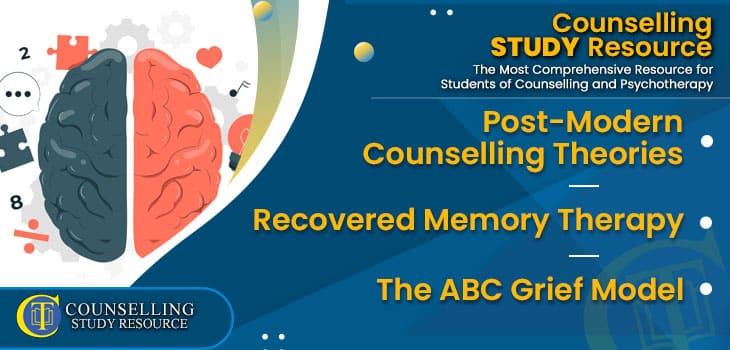See Counselling Skills Used in Real Sessions by Qualified Therapist
Real Sessions – Real Presentations – Real Skills
Gain the competence and confidence to use counselling techniques effectively!

In Episode 268 of the Counselling Tutor Podcast, your hosts, Rory Lees-Oakes and Ken Kelly bring us this week’s three topics:
Postmodern Therapy Primer
For anyone that hasn’t previously looked at post-modern counselling theories, it can be difficult to grasp straight away. Listen as Rory and Ken have a discussion about the beliefs and approaches that make up post-modern counselling:

Real Sessions – Real Presentations – Real Skills
Gain the competence and confidence to use counselling techniques effectively!
In this section, Rory and Ken discuss recovered memory therapy, and some of the conversations that surround its use with clients:

On-demand access to a rich lecture library covering theory, skills, and professional development for counselling students—Mapped to the UK awarding body criteria
“The Student Library has been BRILLIANT, I can’t recommend it enough!
It has been a lifeline in helping me prepare for practice and my first clients. If you’re considering it, go-for-it, it’s absolutely worth it!”
Kelly – Graduated and now in practice.
In this week’s ‘Practice Matters’, Rory speaks with Mandy Gosling about the ABC grief model.
The key points of this discussion include:
Postmodern Therapy Primer

Get on-demand Certified CPD that is implementable in your practice
